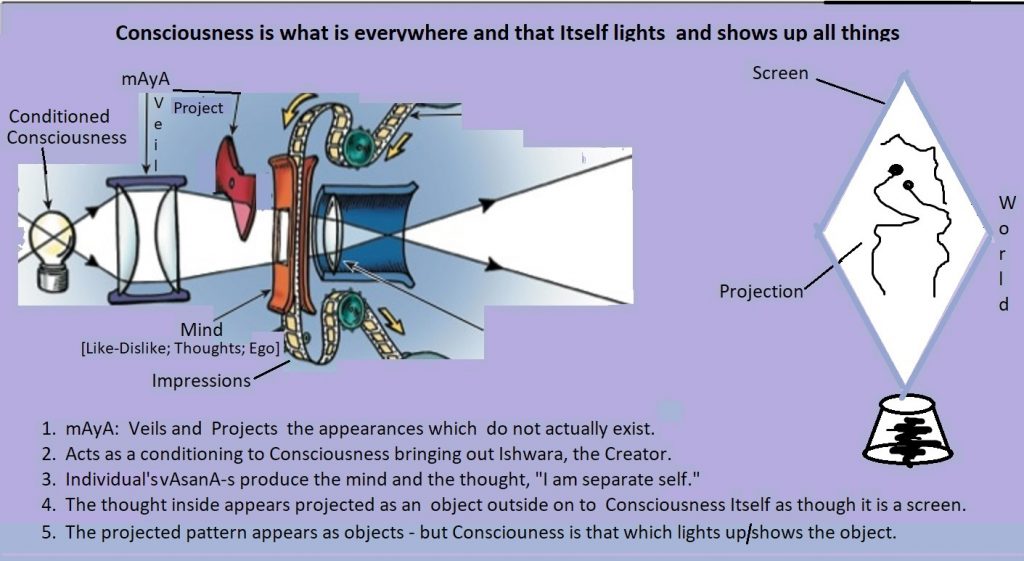Q: Since feelings, perceptions and thoughts require a body-mind, and who I truly am is Atman (= brahman), then why should one not commit suicide in order to escape their mental suffering? When they die they will only remain as ‘brahman’. I know the concept of karma is used to scare people away from suicide, but this doesnt exist since brahman (who you really are) feels nothing and does not experiernce it. So what do you have other than the concept of karma to logically persuade someone out of suicide?
A: It is the person that ‘suffers’ and contemplates suicide, because he believes himself to be the body-mind and identifies with the perceived pains and negative emotions. If you KNOW that you are Brahman, then you also know that you are not the person. There may still be physical pains and the mind may still throw up negative emotions but there is no longer any identification. You know that you are even now perfect and complete; there is no identification with body, mind or world because you know they are not real. Indeed they are your own ‘manifestations’, simply the effect of past causes that affect the body-mind appearance. They do not affect who-you-really-are. Why try to change them?
But unless the person knows this, you are never going to convince someone who is contemplating suicide. They need more empirically conventional solutions such as drugs and counselling!
If you are not happy with this response, I can throw it open to the other bloggers and see if they come up with anything better.

